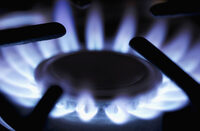 If you don't have your gas appliances serviced regularly, if your gas appliances are fitted by incompetent and untrained workers, or if you don't take steps to respond quickly to boiler breakdowns and other gas emergencies, you could pay for your mistake with your life.
If you don't have your gas appliances serviced regularly, if your gas appliances are fitted by incompetent and untrained workers, or if you don't take steps to respond quickly to boiler breakdowns and other gas emergencies, you could pay for your mistake with your life.
There are four major dangers posed by gas appliances: gas leaks, explosion, fire and carbon monoxide poisoning. If any of these occur, then the health and safety of all occupants of the premises and even their neighbours can be put at risk. But what are the main dangers posed by gas appliances?
Gas leaks
Natural gas is actually also odourless, but suppliers add a minute amount of odourant to the mixture so that people can 'smell gas'. As I will discuss below, gas leaks can lead to explosion and fire, and although unburnt natural gas is not as likely to lead to fatal poisoning as carbon monoxide, a gas leak is still very dangerous.
To mitigate the risk of a gas leak, ensure that the pipework in your home is strong and sturdy and take immediate action should you see signs of corrosion and rust.
If you smell gas, immediately call the National Gas Emergency Number on 0800 111 999. Open your doors and windows, switch off any gas-burning appliances, turn your gas off at the main supply pipe and do not use any appliances until a Gas Safe-registered engineer has confirmed they are safe. Go to the hospital or speak to a doctor if you feel at all unwell.
Fires
We all know that gas is a highly-flammable substance - that's why we use it! Centuries of development and engineering skill have gone into making boilers and gas appliances that should not catch fire when properly used, but in the recent past, central heating systems were prone to fires and anyone who wanted to invest in a cutting-edge new boiler in the 19th century took their life in their hands.
But just because modern gas-burning appliances are considerably safer than their historic counterparts does not mean they are risk-free, and if the gas within the appliance is not burned in a controlled and safe manner, then a fire is a real risk. A small gas leak can easily catch fire and turn into a big problem.
Explosions
Gas leaks can also lead to devastating explosions. Gas is held in a highly-pressurised manner within boilers and gas appliances. Early cast iron boilers would have weak spots where they were liable to rupture and explode like a bomb, but modern engineering techniques have ironed out a lot of these issues.
Most gas explosions nowadays are caused by gas leaks. Flammable gas escapes from a boiler, touches a source of ignition, and sets alight in a chain reaction. These explosions can rapidly kill everyone in a house and destroy the building itself - the newspapers bring us images of houses that have been gutted by gas explosions with dull regularity.
Carbon Monoxide
Carbon Monoxide is a persistent threat for people with gas appliances. This odourless, colourless, flavourless gas kills around 50 people in the UK every year and leaves hundreds with life-long neurological deficits. Victims frequently mistake the symptoms of Carbon Monoxide poisoning with those of flu, and retire to their bedrooms, pass out, and eventually die as the gas supplants the oxygen in their bloodstream.
The best way to protect yourself from this hazard is by installing a carbon monoxide detector in every room that contains a gas-burning appliance. To avoid all kinds of gas emergencies, ensure that all gas-burning appliances are serviced by Gas Safe-registered engineers every year.
Read 247 Home Rescue's top ten Gas Safety recommendations for further information.
Author bio
Kevin Burke writes about health and safety issues on behalf of boiler breakdown and home emergency cover experts 247 Home Rescue.